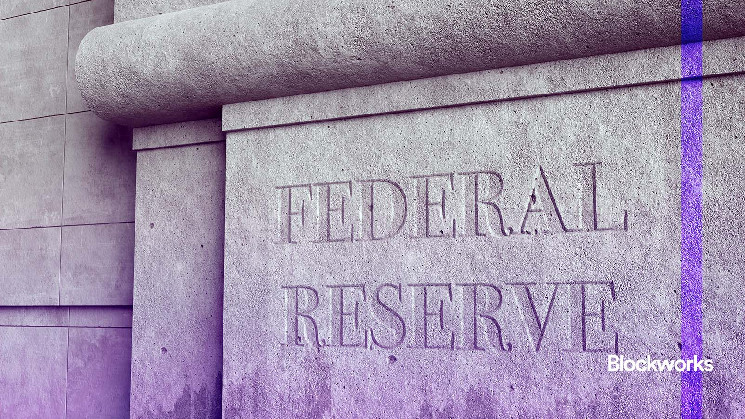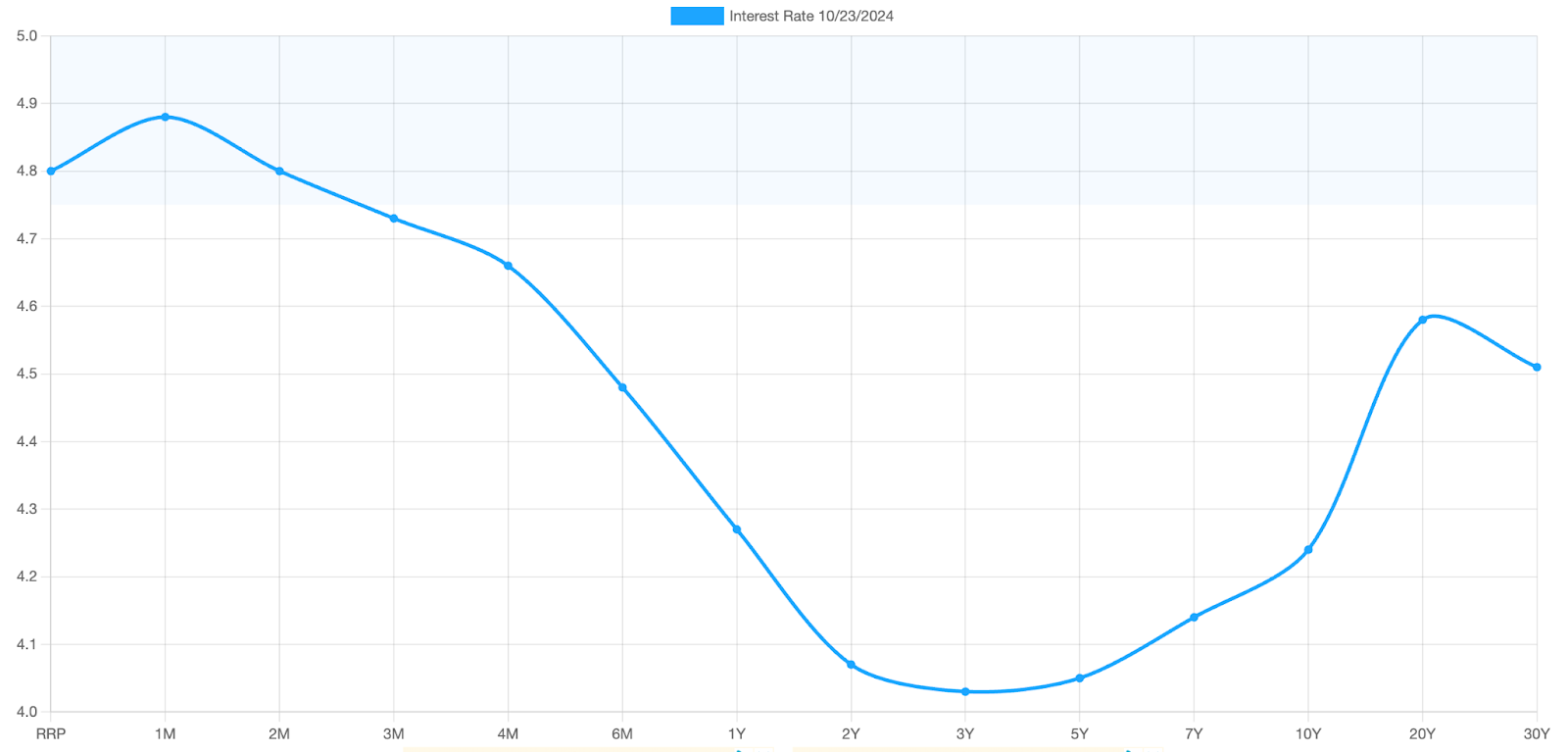Financial conditions tightened since the Fed cut rates. Why?

This is a segment from the Forward Guidance newsletter. To read full editions, subscribe.
If I were to tell you that since the Fed’s rate cut of 50 basis points in September, financial conditions tightened (as opposed to loosened), would you believe me?
Well, that’s exactly what has happened. And for those not in the fixed income weeds, it might be a bit confusing how this could have occurred. So let’s break it down.
1. The rates complex
When the FOMC decides to lower interest rates, they’re actually just lowering one of what comprises many interest rates that make up the yield curve. Specifically, they are lowering the interbank overnight rate, otherwise known as the federal funds rate. As you move further out in duration on the yield curve, the less direct control the FOMC has on what that rate is, and the more it is controlled by market forces:

2. Priced for aggressive slowdown
The FOMC can attempt to influence the long-duration parts of the curve through guidance on the path of rates, however. Through this combination of guidance and a summer of soft economic data, the market then moved to price in one of the most aggressive cutting cycles in history:

We effectively were priced to see the fed funds rate reach 3% by the second half of 2025. From this aggressive pricing, the long end of the yield curve moved significantly lower to price in positioning that looked like a recession.
3. The 50bps cut as a trigger
From there, the Fed moved to cut 50bps, which was only priced at roughly 50% odds. This aggressive move helped quell concerns that the Fed was behind the curve and was risking a recession from happening if it moved too slowly and cut by “only” 25bps.
With the context of the near-recessionary pricing in the long end of the yield curve in mind — paired with an onslaught of positive economic data throughout September and October — something weird happened.
As the Fed cut the fed funds rate by 50bps, nearly every other maturity on the yield curve actually increased, as seen below:

So despite the 50bps cut to the fed funds rate, the vast majority of the yield curve is substantially higher than it was a month ago.
4. The economy operates on the long end
Most borrowing in the economy occurs at the long end of the yield curve as opposed to the short-term money market rates. Therefore, when the price of borrowing on the long end increases, financial conditions tighten, generally speaking. And so, with this recent surge in long bond yields since the 50bps cut, we have seen financial conditions actually tighten.
Term premia has increased, reflecting an increase in opportunity cost for borrowing on longer durations vs. short:

Also, 30-year mortgage rates have actually increased since the 50bps cut, despite the narrative that rate cuts would lead to lower mortgage rates:

This led to the mini mortgage refinancing wave we saw peaking during the week of the FOMC cut. It has decreased ever since, given the opportunity cost to refinance has gotten less alluring as mortgage rates have risen:
And so completes our journey of mechanically unpacking how, despite a cut in the federal funds rate, aggregate borrowing costs have actually increased of late. It’s crucial to look at the broad economy and not just the overnight rate that the Fed talks about.




 Bitcoin
Bitcoin  Ethereum
Ethereum  Tether
Tether  USDC
USDC  Dogecoin
Dogecoin  Cardano
Cardano  TRON
TRON  LEO Token
LEO Token  Chainlink
Chainlink  Stellar
Stellar  Hedera
Hedera  Litecoin
Litecoin  Bitcoin Cash
Bitcoin Cash  Monero
Monero  Dai
Dai  OKB
OKB  Cronos
Cronos  Gate
Gate  Ethereum Classic
Ethereum Classic  VeChain
VeChain  Cosmos Hub
Cosmos Hub  Algorand
Algorand  KuCoin
KuCoin  Maker
Maker  Stacks
Stacks  Theta Network
Theta Network  Tether Gold
Tether Gold  Tezos
Tezos  IOTA
IOTA  Zcash
Zcash  TrueUSD
TrueUSD  NEO
NEO  Polygon
Polygon  Dash
Dash  Synthetix Network
Synthetix Network  Zilliqa
Zilliqa  0x Protocol
0x Protocol  Qtum
Qtum  Basic Attention
Basic Attention  Decred
Decred  Holo
Holo  Siacoin
Siacoin  Ravencoin
Ravencoin  DigiByte
DigiByte  NEM
NEM  Enjin Coin
Enjin Coin  Ontology
Ontology  Waves
Waves  Nano
Nano  Hive
Hive  Status
Status  Lisk
Lisk  Pax Dollar
Pax Dollar  Huobi
Huobi  Numeraire
Numeraire  Steem
Steem  BUSD
BUSD  OMG Network
OMG Network  Ren
Ren  Bitcoin Diamond
Bitcoin Diamond  Bitcoin Gold
Bitcoin Gold  Augur
Augur  HUSD
HUSD